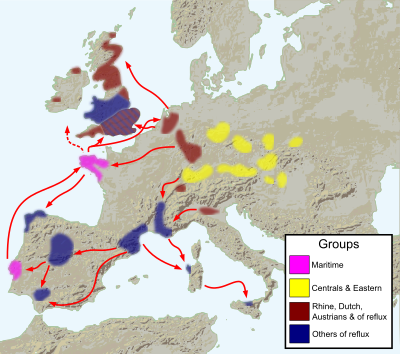From section V of the Prologue in the Prose Edda...
The Æsir took wives of the land for themselves, and some also for their sons; and these kindreds became many in number, so that throughout Saxland, and thence all over the region of the north, they spread out until their tongue, even the speech of the men of Asia, was the native tongue over all these lands. Therefore men think that they can perceive, from their forefathers' names which are written down, that those names belonged to this tongue, and that the Æsir brought the tongue hither into the northern region, into Norway and into Sweden, into Denmark and into Saxland. But in England there are ancient lists of land-names and place-names which may show that these names came from another tongue than this.
It would seem that even in the 12th century, it was known that the languages of Europe and Asia were related and spread from a single point. It also points out that there were unrelated languages being spoken in the regions IE migrated into. I find this interesting that the Edda states this in such a matter-of-fact way. This is stated 600 years before Ferdinand de Saussure and Sir William Jones perceived connections between the IE languages.
The Æsir took wives of the land for themselves, and some also for their sons; and these kindreds became many in number, so that throughout Saxland, and thence all over the region of the north, they spread out until their tongue, even the speech of the men of Asia, was the native tongue over all these lands. Therefore men think that they can perceive, from their forefathers' names which are written down, that those names belonged to this tongue, and that the Æsir brought the tongue hither into the northern region, into Norway and into Sweden, into Denmark and into Saxland. But in England there are ancient lists of land-names and place-names which may show that these names came from another tongue than this.
It would seem that even in the 12th century, it was known that the languages of Europe and Asia were related and spread from a single point. It also points out that there were unrelated languages being spoken in the regions IE migrated into. I find this interesting that the Edda states this in such a matter-of-fact way. This is stated 600 years before Ferdinand de Saussure and Sir William Jones perceived connections between the IE languages.





